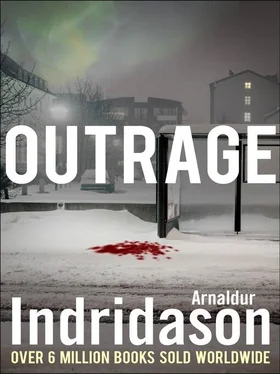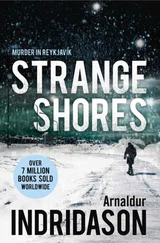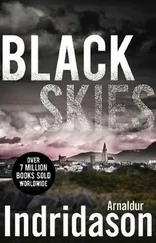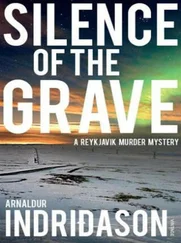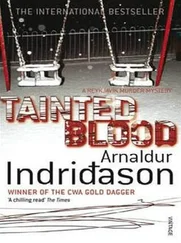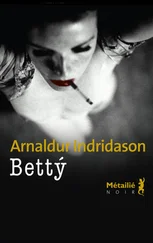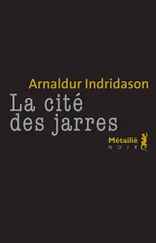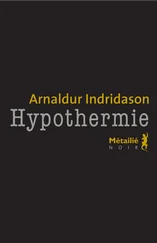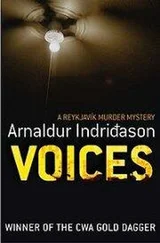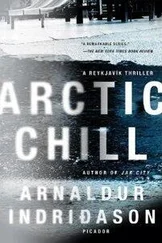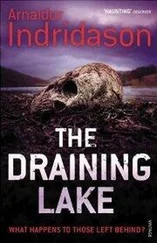Arnaldur Indridason - Outrage
Здесь есть возможность читать онлайн «Arnaldur Indridason - Outrage» весь текст электронной книги совершенно бесплатно (целиком полную версию без сокращений). В некоторых случаях можно слушать аудио, скачать через торрент в формате fb2 и присутствует краткое содержание. Год выпуска: 0101, Издательство: Random House Canada, Жанр: Полицейский детектив, на английском языке. Описание произведения, (предисловие) а так же отзывы посетителей доступны на портале библиотеки ЛибКат.
- Название:Outrage
- Автор:
- Издательство:Random House Canada
- Жанр:
- Год:0101
- ISBN:нет данных
- Рейтинг книги:3 / 5. Голосов: 1
-
Избранное:Добавить в избранное
- Отзывы:
-
Ваша оценка:
- 60
- 1
- 2
- 3
- 4
- 5
Outrage: краткое содержание, описание и аннотация
Предлагаем к чтению аннотацию, описание, краткое содержание или предисловие (зависит от того, что написал сам автор книги «Outrage»). Если вы не нашли необходимую информацию о книге — напишите в комментариях, мы постараемся отыскать её.
Outrage — читать онлайн бесплатно полную книгу (весь текст) целиком
Ниже представлен текст книги, разбитый по страницам. Система сохранения места последней прочитанной страницы, позволяет с удобством читать онлайн бесплатно книгу «Outrage», без необходимости каждый раз заново искать на чём Вы остановились. Поставьте закладку, и сможете в любой момент перейти на страницу, на которой закончили чтение.
Интервал:
Закладка:
‘Where are we?’ asked Elínborg. ‘Where are you taking me?’
She soon found out. They followed a narrow path past a large tree. In the glow of the torch Elínborg made out concrete steps leading up to a building — she could not tell what it was. The girl turned to the right and up a shallow slope. In the torchlight Elínborg saw a white cross, and in the next flash of light a slab of cut stone that had subsided into the ground. She could see an inscription.
‘Is this a churchyard?’ whispered Elínborg.
The girl made no answer but walked on until she came to a simple white wooden cross. In the centre was a plaque with an inscription in small letters, and on the grave itself lay a bunch of fresh-looking flowers.
‘Whose grave is this?’ asked Elínborg, trying to decipher the inscription in the wavering beam of the torch.
‘It was her birthday the other day,’ the girl murmured.
Elínborg gazed at the grave marker. The torch went out. She heard footsteps fading into the distance, and realised that she had been left alone in the churchyard.
30
It took Elínborg a long time to get to sleep, and after a few hours’ rest she got up early. Overnight the wind had dropped, and a light snow was falling. She did not know whether she would see the girl again, nor why she had taken her down to the churchyard. Elínborg had managed to read the inscription on the grave marker: it was a woman’s name. She thought about the woman who lay in the grave, the flowers someone had recently placed there, the story buried in the earth, an enigma.
She stayed in her room all morning, making phone calls to Reykjavík and preparing herself for the day. It was early afternoon when she strolled down to the restaurant. Although the lunchtime rush was over, some customers still lingered. Lauga had someone helping her in the kitchen. Elínborg ordered bacon and egg and a coffee. She felt that the other diners were looking at her askance, as if she were an intruder, but she pretended not to notice. She took her time, lingered over her lunch, and had a second cup of coffee while she observed her surroundings.
Lauga took Elínborg’s empty plate, and wiped the table top. ‘When do you think you’ll be going back to the city?’ she asked.
‘That depends,’ said Elínborg. ‘The village does have certain things to offer, even though nothing ever happens here.’
‘No, I suppose not,’ said Lauga. ‘I hear you were out all night.’
‘Really?’
‘Rumour around the village,’ explained Lauga. ‘There are plenty of rumours here. You shouldn’t believe everything you’re told in a place like this. I hope you’re not going to put your faith in rumour.’
‘No, I have no intention of doing so,’ said Elínborg. ‘Is it likely to snow today, do you know?’ she asked, glancing out of the window. She did not like the look of the overcast sky.
‘That’s what the forecast says,’ replied Lauga. ‘There’s likely to be a storm this evening and tonight.’
Elínborg stood up. She was the only customer remaining.
‘It does no one any good to go stirring up the past,’ Lauga went on. ‘It’s all over and done with.’
‘Speaking of the past,’ said Elínborg, ‘you must have known a girl called Adalheidur who lived in the village? She died two years ago.’
Lauga hesitated. ‘I know who she was, yes,’ she said at last.
‘What did she die of?’
‘What did she die of?’ parroted Lauga. ‘I’m not going to talk about that.’
‘Why not?’
‘I just don’t want to.’
‘Can you help me find any of her friends, or family? Someone I could talk to?’
‘I can’t help you with that. I run this restaurant. That’s my job. It’s not my job to tell stories to strangers.’
‘Thank you,’ said Elínborg. She walked to the door and opened it. Lauga was standing in the middle of the restaurant, watching her go, as if she had more to say.
‘You would be doing us all a favour if you just went home to Reykjavík and never came back,’ said Lauga.
‘Who exactly would I be doing a favour by doing that?’
‘All of us,’ answered Lauga. ‘There’s nothing for you here.’
‘We’ll see,’ said Elínborg. ‘Thanks for the meal. You’re an excellent cook.’
On her way back to the churchyard Elínborg decided to make one house call. She went up the steps of Runólfur’s mother’s home and rang the doorbell. She heard a faint ringing from indoors and the door opened. Kristjana remembered her at once and asked her in.
‘Why are you back?’ she asked, sitting in the same chair as before. ‘What do you want here?’
‘I’m looking for answers,’ replied Elínborg.
‘I don’t know that you’ll find any, not here,’ commented Kristjana. ‘This is a rotten place. Such a rotten place. I’d have left long ago if only I’d had the guts.’
‘Isn’t this a good place to live?’
‘A good place to live?’ asked Kristjana. She wiped her lips with a tissue, then set about twisting it in her fingers. ‘Don’t go listening to people’s lies.’
‘What would people be lying about?’ Elínborg recalled what Lauga had said about listening to rumours.
‘Everything,’ replied Kristjana. ‘There are a lot of scum living here, let me tell you. Scum who love to slander respectable people. Have you been hearing things about me? I’m sure they’re drooling over the stories about my poor Runólfur. They enjoy that. But don’t you go believing everything they say.’
‘I’ve only just got here,’ replied Elínborg. Kristjana’s manner was different, more aggressive than at their first meeting. Elínborg did not intend to discuss Kristjana’s husband’s death since she did not know whether the woman was aware of the true nature of the events.
There was, however, another matter that she wanted to ask her about. Elínborg considered her best approach, then plunged in: ‘The only thing I’ve heard,’ she said, ‘is that he had a strict upbringing. That you were pretty strict with your son.’
‘Strict? With Runólfur? Ha! What bloody nonsense. That lad needed a firm hand. Who told you that?’
‘I don’t remember,’ said Elínborg.
‘Strict with Runólfur! Of course they would say that — those scum, bringing up their brats to be hooligans. Hooligans! They broke one of my windows just the other day. No one will admit to it. I reckoned I knew who’d done it, and I got in touch with their parents but they wouldn’t listen. People have got no respect for their elders these days.’
‘So were you strict with him?’ asked Elínborg.
Kristjana glanced sharply at her. ‘Are you blaming me for what he was?’
‘I don’t know what he was,’ replied Elínborg. ‘Maybe you can tell me.’
Kristjana sat in silence, wiped her mouth with her tissue, and went on twisting it in her hands. ‘Don’t believe everything you’re told in the village,’ she said. ‘Have you found his killer?’
‘No, I’m afraid we haven’t,’ said Elínborg.
‘Some people were arrested — I saw it on the news.’
‘That’s right.’
‘Did you come here to tell me that?’
‘No, actually I didn’t. I want to ask you if you think anyone from around here might have hurt your son.’
‘You asked me that last time — whether he had any enemies here. I don’t think so. But if he really was the monster you seem to think, then I can’t be sure.’
‘I asked you about women in his life as well,’ said Elínborg cautiously.
‘Yes, well, I don’t know anything about any women,’ Kristjana replied.
‘There’s one woman I’d like to ask you about. She lived here. Her name was Adalheidur.’
Читать дальшеИнтервал:
Закладка:
Похожие книги на «Outrage»
Представляем Вашему вниманию похожие книги на «Outrage» списком для выбора. Мы отобрали схожую по названию и смыслу литературу в надежде предоставить читателям больше вариантов отыскать новые, интересные, ещё непрочитанные произведения.
Обсуждение, отзывы о книге «Outrage» и просто собственные мнения читателей. Оставьте ваши комментарии, напишите, что Вы думаете о произведении, его смысле или главных героях. Укажите что конкретно понравилось, а что нет, и почему Вы так считаете.
